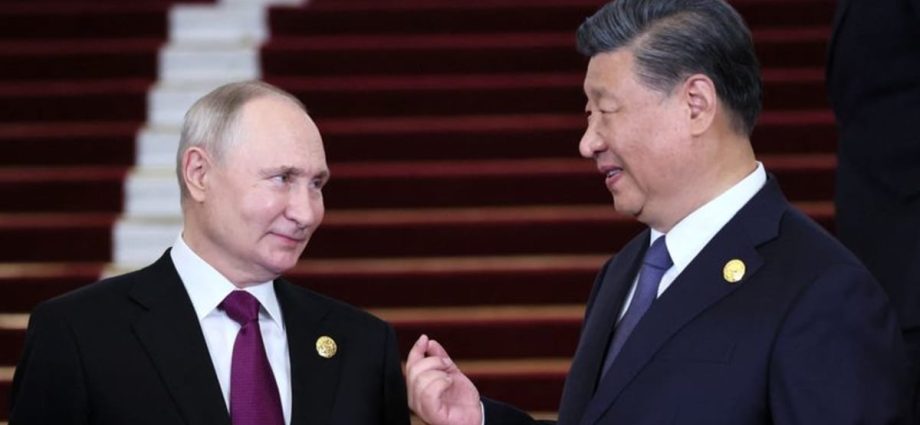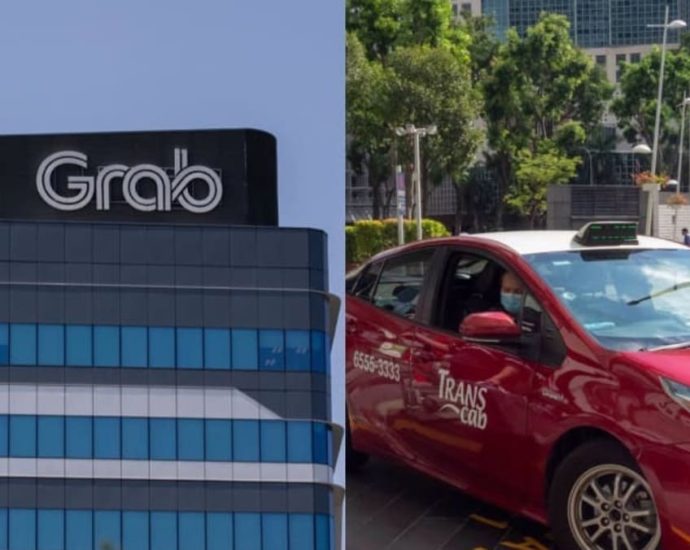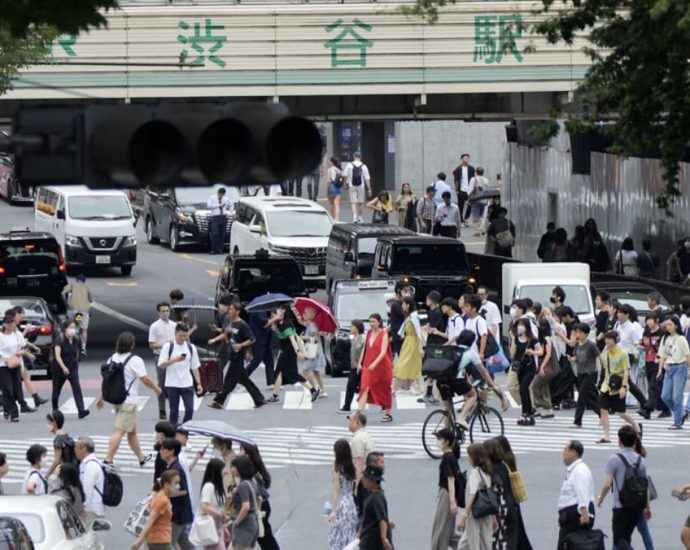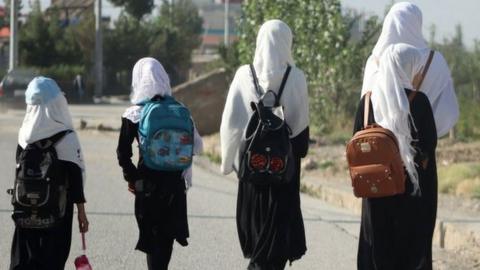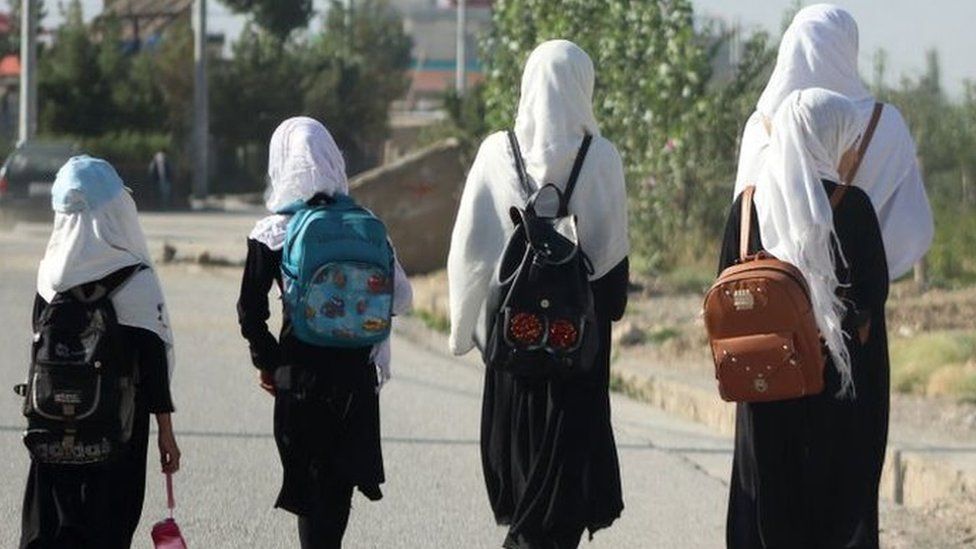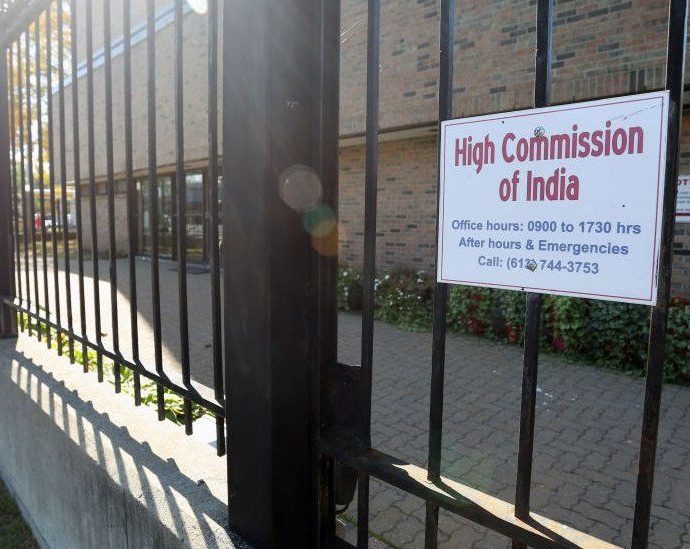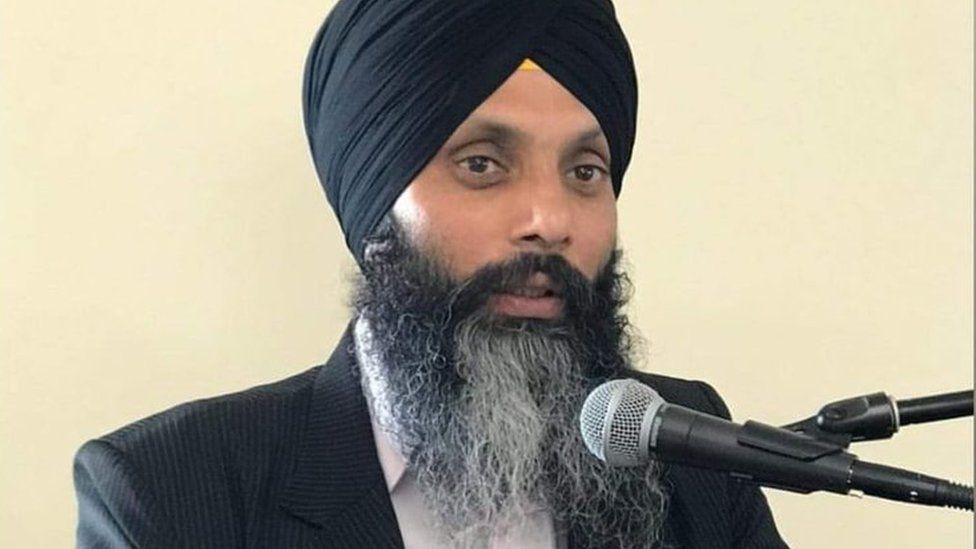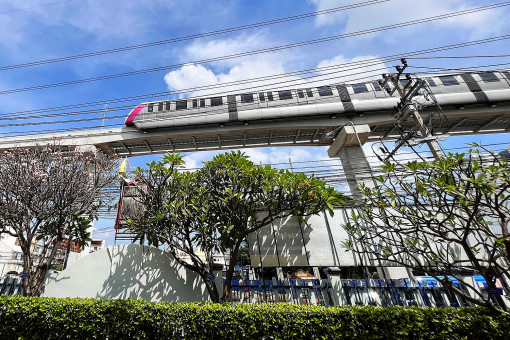Commentary: Xi-Putin Belt and Road meeting highlights Russiaâs role as Chinaâs junior partner
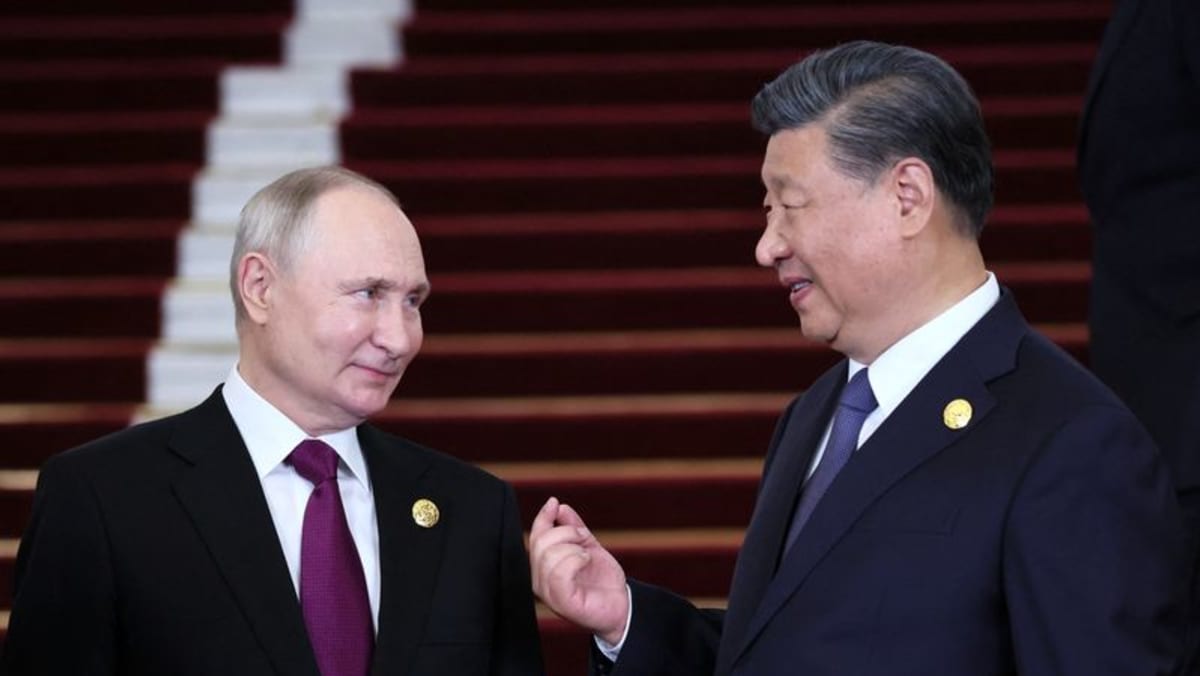
Perhaps the most instructive aspect of the visit was Putin’s explicit acknowledgement of the different roles played by Moscow and Beijing in international politics.
Putin described the Russia-dominated Greater Eurasian Partnership (GEP) – a concept Moscow has promoted as a response to the Belt and Road Initiative (BRI) that would fuse the Eurasian Economic Union with the BRI – as a regional or “local” project. Meanwhile he happily described the BRI as “global” in scale.
For the past decade, Russian policymakers and experts have consistently held up the GEP as symbolising Russia’s equality with China. Russian foreign minister Sergei Lavrov has described it as “the creation of a continent-wide architecture”.
Putin’s words, coupled with the lack of any meaningful results of the meeting (bar a contract on food and agricultural products which has yet to be confirmed by Beijing), illustrate the extent to which Russia’s war against Ukraine has deepened the asymmetry between the two powers.
HOLDING BACK?
The lack of genuine progress on the issue of the Power of Siberia-2 pipeline, which will transport gas from Russia’s Yamal gas fields, which used to supply Europe, via Mongolia to China, was further evidence of this asymmetry. Xi was kind enough to express hope that the project could proceed quickly. But he did not outline any concrete steps in that direction.
China’s agreement, if confirmed by a contract, would have been the most clear signal of Beijing’s strategic support for Russia, especially given Gazprom’s shrinking European market. By prolonging negotiations, China seems to be trying to extract specific concessions from Russia, related to the price of gas, possible Chinese ownership of gas fields in Russia, or Beijing’s acquisition of shares in Gazprom.
Meanwhile, in May, China revived the prospect of building the so-called section “D”, enlarging the capacity of the Central Asia-China gas pipeline system, which will bring gas from Turkmenistan via Kyrgyzstan and Tajikistan to China, emphasising China’s other sources of energy supplies.
While continuing to offer Moscow political support and not interfering with Chinese companies’ attempts to take advantage of the exodus of Western companies to increase their presence in the Russian market, Beijing has clearly attempted to prevent any embarrassment related to Russia. A gas contract would have overshadowed the BRI summit and generated a strong reaction in the US and Europe, potentially strengthening China hawks in the West.
Singapore-based multi-currency app YouTrip raises another US$50 million in funding

Ms Chu, who is also the company’s co-founder, said YouTrip has grown 200 per cent year-on-year and reached profitability in April this year.
“In order to raise money in this current climate, you have to do both simultaneously,” she said.
The money will be used to invest in more technologies to improve YouTrip’s products.
Users can soon add their YouTrip cards to Google Pay, and QR code payments are “part of (the) roadmap in the near term”, Ms Chu said.
YouTrip also plans to introduce new features after the Monetary Authority of Singapore (MAS) increases the amount of money that can be stored in e-wallets from S$5,000 to S$20,000 (US$3,600 to US$14,600). The 12-month payment limit will also increase from S$30,000 to S$100,000. The changes are slated to happen sometime this year.
“It really opens up a whole lot more opportunities for us to build more features like additional currency wallets, remittance services, more partnerships with merchants and many more features,” she said. Budgeting recommendations and financial insights are also in the works.
MARKET SHARE, EXPANSION PLANS
The CEO said YouTrip’s strategy is to stay consistent and focus on localisation.
“We customise the app and also the card face (design) in every market we go into. So we just don’t take something that works in another part of the world and plug it in here and assume people would like it,” she said.
YouTrip said its market share in Singapore is “quite high”, but declined to reveal specific user numbers for any country.
Expansion in Southeast Asia has been a goal since before COVID-19 struck, but the company could go beyond the region now that it is “well-capitalised” following its Series B fundraising, said Ms Chu.
“What it allows us to do is to also look at some of the international financial hubs that have similar characteristics with Singapore, so we are definitely broadening our minds in terms of where to launch going forward.”
Although YouTrip has diversified into e-commerce and business payments, travel is what has propelled the company’s growth since borders reopened after the pandemic.
Singaporean users are savvy and have been buying currencies when the rates are good, Ms Chu said. Some hold the currencies for many months before spending it overseas.
“For popular destinations like Japan, people do think they can exchange first and hold it, because no matter what, they will make a trip there,” she said. The US dollar and euro are also popular currencies to hold onto.
Commentary: Could Trans-cab merger and rumoured foodpanda buyout spell trouble for Grab customers?

FOODPANDA EXIT – BUY OUT OR SHUT DOWN?
In food delivery, the focus of leading players has definitely shifted towards profitability.
Although Delivery Hero announced in August that it had achieved positive adjusted profit before interest, tax, depreciation and amortisation (EBITDA) on a group level in the first half of 2023, it had hinted in earnings calls that it would exit markets where it did not have a clear lead.
There have been rumours of Delivery Hero exiting foodpanda in Southeast Asia since last year. Based on the Momentum Works Apples to Apples analysis, Delivery Hero Southeast Asia collectively contributes less than half of the gross merchandise value that Korea generates through its subsidiary Woowa Brothers. In addition, Delivery Hero has also been grappling with a diminishing market share in the region and a much weaker cash position compared to Grab.
In this context, it is hard to see how Delivery Hero could turn this around and make Southeast Asia meaningful and worthwhile for it. If the decision is indeed to exit Southeast Asia, the only choices are finding a buyer or shutting down.
Shutting down is not an ideal outcome for everyone involved – employees, F&B establishments, riders and customers. There was chaos when Deliveroo suddenly announced on Nov 16, 2022 it would exit Australia immediately, shocking restaurants and customers with unfulfilled orders and sent riders scrambling for jobs.
Things could only be more complicated in Southeast Asia’s fragmented markets. Delivery Hero itself would need to go through the painful process of liquidating its multitude of entities, which could take very long and be very costly.
While Grab has not acknowledged talks with Delivery Hero, it’s hard to see any other party with meaningful business logic and experience to take over foodpanda.
Unlike the Grab-Trans-cab deal – which is estimated to be around S$100 million (US$75 million) for 2,500 vehicles, vehicle workshops and fuel pump operations – the question is what Grab really gains from buying foodpanda for a rumoured €1 billion (US$1.06 billion) when it has its own established food delivery network and could simply wait to fill the space left by foodpanda’s exit.
Commentary: Wanted – 80-year-old taxi drivers to ease Japanâs labour crunch
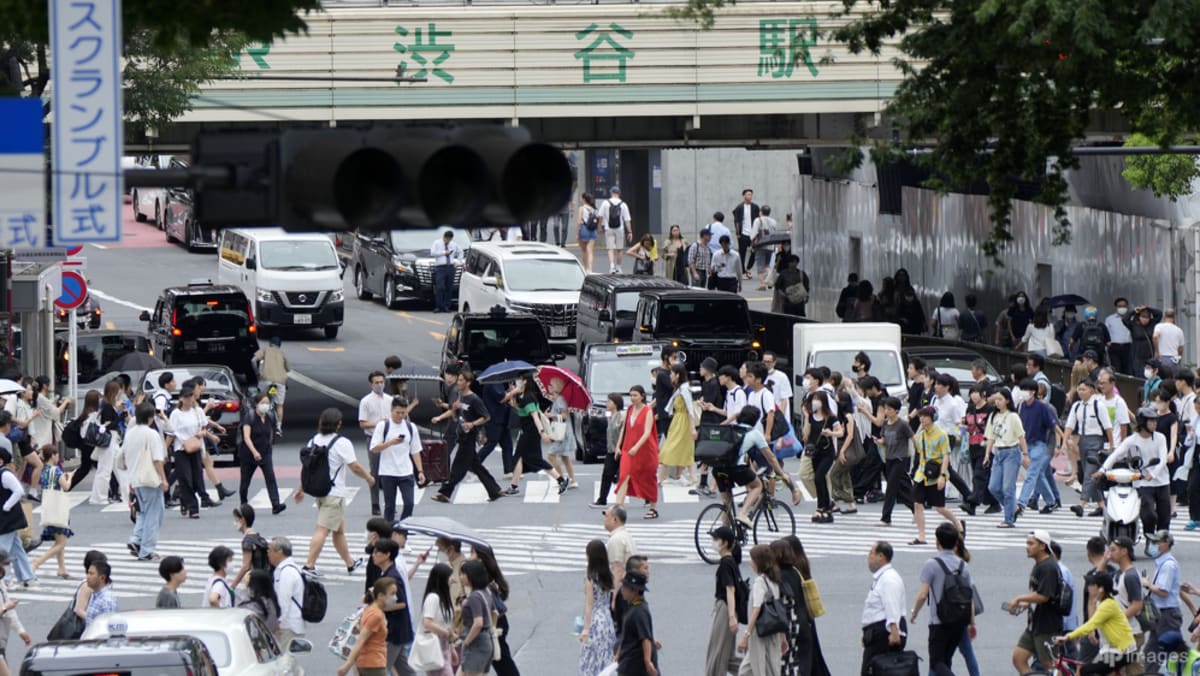
The longtime Japan watcher and economist Jesper Koll sees the shortage leading to a new “golden age” in which full-time jobs replace irregular youth employment, with wage increases and opportunities accruing to the younger generation.
Junichi Makino, the chief economist at SMBC Nikko Securities Inc, expects the higher labour costs that will inevitably result to spur company investment in raising Japan’s unusually low labour productivity and lift economic growth.
“Over the past 20 years, economic actors in Japan have moved to reduce wages and employment and curb capex amid a deflationary environment,” Makino writes. “From here though, Japan is set for a macro environment of insufficient supply, which will require more capex to bridge the gap, and we expect this to be an engine for economic growth to accelerate again.”
SUPPLEMENTING WITH FOREIGN WORKERS AND TECH
That optimistic outcome depends on the country finding solutions.
One of the most pressing issues is what’s being referred to as the “2024 Problem” – a looming logistics crisis that could hit next year, when regulations limiting overtime hours in the already stretched trucking industry will come into effect. Estimates say it could result in a 14 per cent drop in transportable cargo by 2025, ballooning to 34 per cent by 2030.
The government is scrambling for solutions, including cutting wasteful journeys by encouraging customers to avoid deliveries when no one is home.
Everything is on the table: The types of jobs that the country’s increasing number of foreign workers can take are being expanded, with bus drivers possibly next to be added. Self-driving cars and other automated solutions are being proposed.
Biden and Australia’s Albanese meet in DC to strengthen alliance
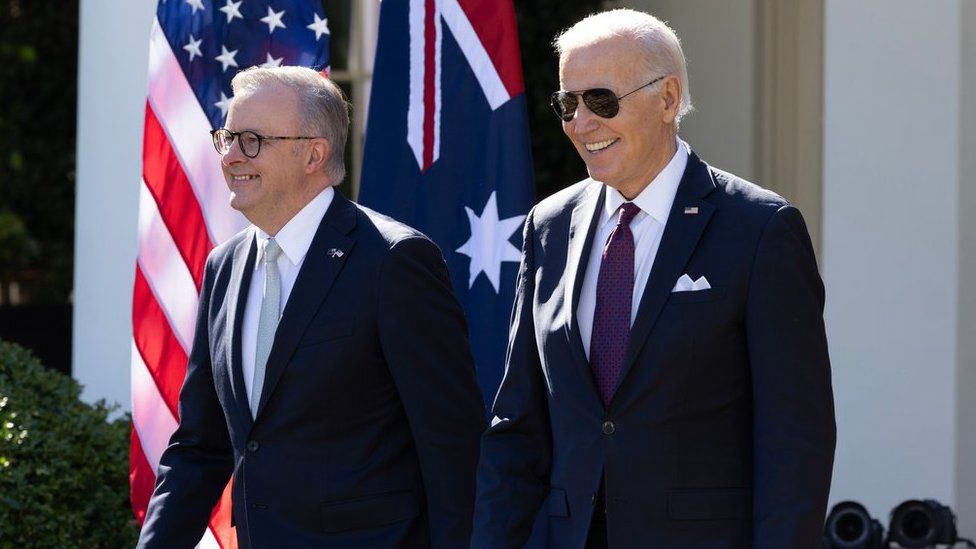 MICHAEL REYNOLDS/EPA-EFE/REX/Shutterstock
MICHAEL REYNOLDS/EPA-EFE/REX/ShutterstockPresident Joe Biden discussed national security, climate change and technology with Australian Prime Minister Anthony Albanese during a meeting on Wednesday.
“Australia and America stand ready to do the hard work, the historic work, to tackle the challenges we face,” Mr Biden said after the meeting.
The leaders also emphasised they were united against all acts of aggression, particularly those by Russia and Hamas.
Their major divergence appeared to be on how to deal with China.
Speaking in the White House Rose Garden alongside Mr Albanese, Mr Biden took a strong stance on possible conflict in the South China Sea. Chinese vessels have blocked and rammed ships in the area that belong to the Philippines.
The US president said he wanted “to be very clear” that the American defence commitment to the Philippines was “ironclad”.
Mr Albanese was more reserved, saying his approach toward his neighbour was “to cooperate where we can, disagree where we must, but engage in our national interest”.
Still, they agreed that securing the Indo-Pacific region is a high priority.
With the two leaders speaking from side-by-side lecterns, the event highlighted their countries’ alliance and teemed with pomp and circumstance, with a military band playing and senior US security and diplomatic leaders seated front and centre.
The leaders pledged to work together on finding ways “to stand with Israel” after the 7 October attack by Hamas.
Mr Biden is asking Congress for $100bn (£83 bn) to address numerous national security challenges, including Israel and the Indo-Pacific region.
Mr Albanese praised Mr Biden for working closely with Australian leaders to add a new tier to their partnership: climate change. He noted this was his ninth meeting with Mr Biden since he became prime minister 16 months ago.
He also said Aukus – the trilateral security agreement between the UK, US and Australia – would ensure “peace and security in our region”.
Itaewon crush: Survivors are still tormented a year on
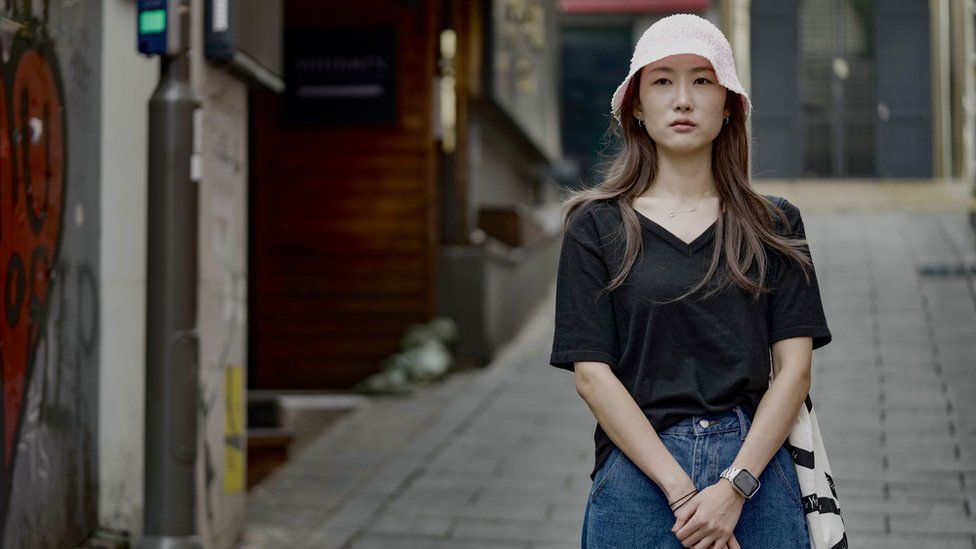
One year on from the horrific crowd crush that killed nearly 160 young people, Lee Ju-hyun returned to the alleyway where she almost died.
She visits regularly, determined to keep her memories of that awful night alive until justice has been served.
It was Halloween weekend, and more than 100,000 people had descended on Seoul’s labyrinth-like neighbourhood of Itaewon – a popular nightlife district – to party.
They funnelled into a narrow, steep passage from three directions, until it became so tightly packed people could not move. Some could not breathe. Many died.
Despite multiple, well-documented failings by the authorities, a year on, no one has been held responsible, leaving the survivors and the bereaved struggling to heal.
Ju-hyun can locate the exact spot where she tripped and fell to the floor as people then piled on top of her. The pressure was so great, the muscles in her legs ruptured, paralysing them, and she lost consciousness. She awoke, still trapped, to the sound of chaos.
“There were screams everywhere. Those in the crowd were screaming ‘please help me, I don’t want to die’, while those in a club who could see what was unfolding were shouting ‘please don’t die; please don’t die.'”
Gradually the screams and prayers receded.
Now much of the ghostlike alleyway is boarded up. Some of its bars never reopened. And thousands have been left haunted, either by the horror of enduring the crush, or by the loss of loved ones who did not make it.
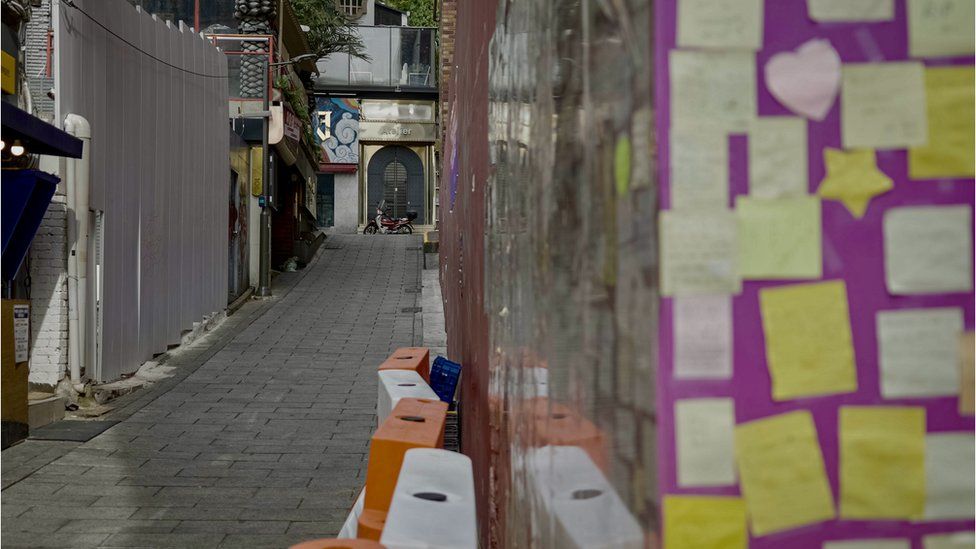
Park Jin-sung lives with both.
He was visiting Seoul with his mother and younger sister. Intrigued by the Halloween parties in Itaewon, they decided to check them out. By the time they arrived, the alleyway was heaving and Jin-sung urged his sister to escape, while he stayed behind to look after their mother.
He held her as she struggled to breathe, creating a tiny pocket of space between them, so she could draw air into her lungs. When the paramedics arrived, he pulled her out through a gap in the crowd.
He ran around the streets and hospitals, his muscles fatigued, searching for his sister, until the police called him from the morgue. “That was when the world collapsed on me”, he said. “Initially, I wasn’t able to leave the house. I was very scared at night. A tiny sound would paralyse me.”
Both he and his mother quit their jobs.
A year on, Jin-sung is working again, and his fear and sadness have been replaced by anger.
Many of the survivors, along with the families of the bereaved, say they have still not been given adequate answers as to what went wrong that night.
An initial investigation concluded that local government officials had failed to adequately plan for the event by putting crowd control measures in place. It also found police had ignored calls from concerned attendees warning about the crowds before the crush turned deadly. The emergency services then failed to get paramedics to the site in time.
But there has been little explanation as to why such mistakes were made, especially since the authorities had anticipated large crowds – and had foreseen and documented the potential for danger.
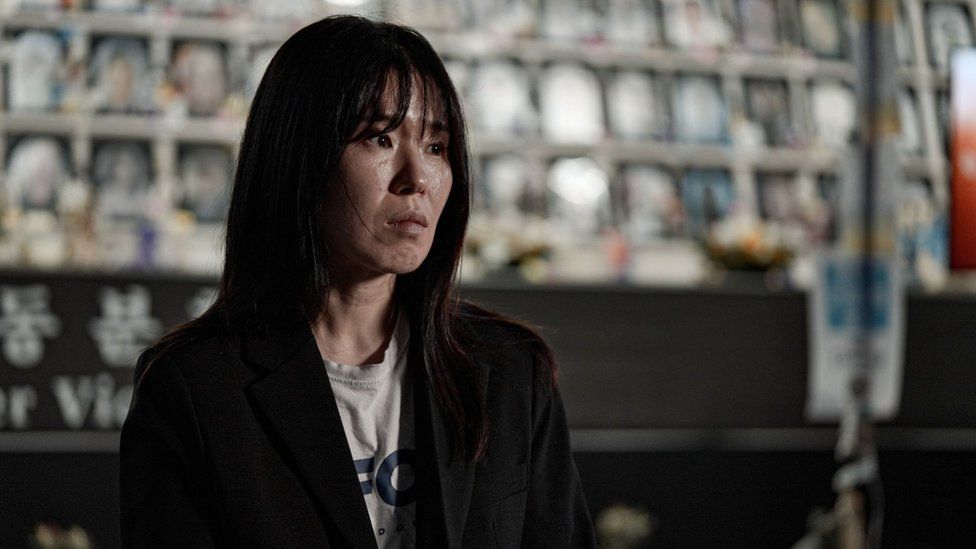
Twenty-three police officers and government officials have been charged with criminal offences including involuntary manslaughter and negligence. Many remain in their jobs, even while their trials and investigations are ongoing.
More senior politicians and officials, including the interior minister, the mayor of Seoul and the National Police Agency have been cleared of wrongdoing.
For Park Jin-sung, this is proof the disaster has not been properly investigated. He and other families are pushing for a new, independent investigation, which is currently awaiting parliamentary approval. “They’ve not held even one meeting to explain what happened and say, ‘look, we’re really, really sorry'”. Even that would have been enough to ease his pain, he said.
In the aftermath of the disaster, the government set up a trauma centre to provide counselling to survivors. Jin-sung receives a text once a week offering support, but he has not responded. “It’s run by the government, and I don’t trust the government very much, so I don’t feel comfortable going there”, he said.
For one survivor, 16-year-old Lee Jae-hyun, the trauma proved too much to bear. He was wedged in the centre of the crowd with his best friend and girlfriend, helplessly watching her lose consciousness, before he too stopped breathing. From his hospital bed, he learnt that both she and his friend had died, making them two of the youngest victims.
Forty-three days after the disaster Jae-hyun took his own life, making him victim number 159.
“He was a completely different boy after the tragedy”, his mother, Song Hae-jin, told us. “Before, he was a cheerful, talkative kid. Afterwards, he almost never spoke. He sat alone in his room, unable to sleep”.
There is no official memorial to the victims of the crush. Their families take it in turns to watch over the altar, adorned with photos of the dead, lest the authorities try to remove it; something they have threatened to do.
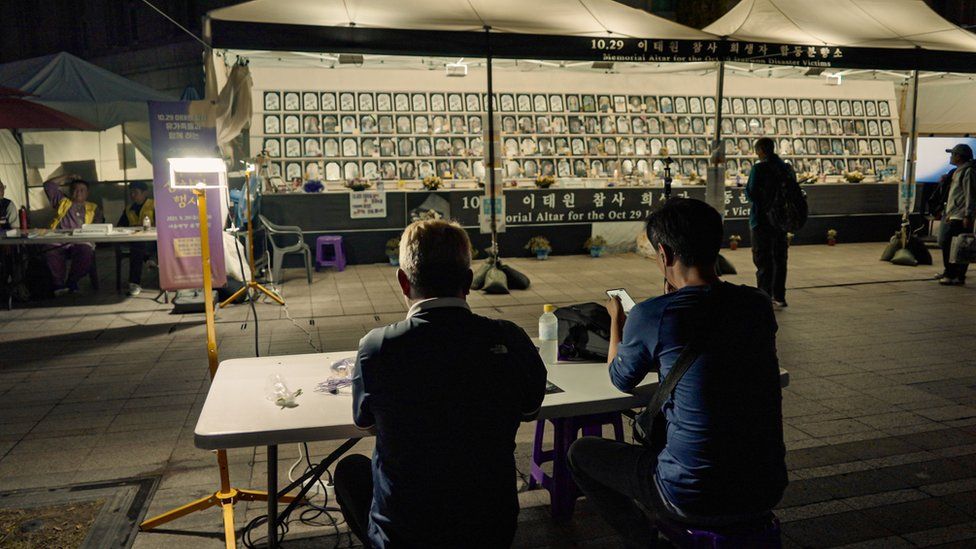
Hae-jin described the relationship between the families and the authorities as problematic. After the crush, she claims they were ostracised, as various authorities tried to avoid taking responsibility. In the immediate aftermath, some people even pointed fingers at the survivors and the dead, suggesting they were to blame for going out that night. Hae-jin recalled how much this upset her son.
“Ultimately it was the government and local authority that failed to serve their duty to protect lives. There has been no accountability for that at all. In order to heal, we need to clarify why this happened and who was responsible”, she said, adding that she would feel guilty until the day she died for not protecting her son.
Psychiatrist Paik Jong-woo, from Kyung Hee University Medical Centre, argues that the politicisation of the disaster and the lack of accountability have made it harder for survivors and the bereaved to recover. He created a psychological support group to counsel them, after realising very few were receiving help.
“As a society we need to take care of the victims and show them how we plan to prevent this from happening again. Then they can find comfort in the belief that lives were not lost in vain, but have made our society safer”, he said.
The government, the Seoul city council and the police turned down our requests for an interview about what lessons they had learnt and how they planned to keep people safe this Halloween. They told us this was not the right time to talk.
In a statement, the government said it was “deeply saddened by the tragedy and has been expressing its apologies and sympathies to the victims and their families at every opportunity”.
The authorities did detail some new safety measures they had introduced. Now, when three calls are made to the police within a 50 metre radius, they are automatically flagged – and emergency services are forced to work together when requested; no longer can they refuse call outs, as happened in the early minutes of the crush. Meanwhile, a new CCTV system is being rolled out across Seoul to monitor crowd densities.
However the district authority, Yongsan, which was criticised for not implementing safety measures ahead of the event, refused to answer any of our questions about what changes, if any, it had made.
Itaewon’s upcoming Halloween celebrations are expected to be a far quieter affair. Some bars and clubs have announced they will not be hosting parties. Lee Ju-hyun, however, plans to attend. “I want to show people it’s not our fault we came here to enjoy ourselves”, she said.
After spending two months in hospital, her legs have now mostly recovered, barring some pain on her right side when she stands for too long, and her initial trauma has subsided.
Though as she stopped to read the colourful notes of condolence, stuck along one wall of the alleyway, a single tear trickled down her cheek.
“I’m sad for those who died and those they left behind”, she said. “I always stop here to ask them ‘what do you need us survivors to do for you?'”
Additional reporting by Hosu Lee and Leehyun Choi.
Related Topics
UK to charter flights for Afghan refugees stuck in Pakistan
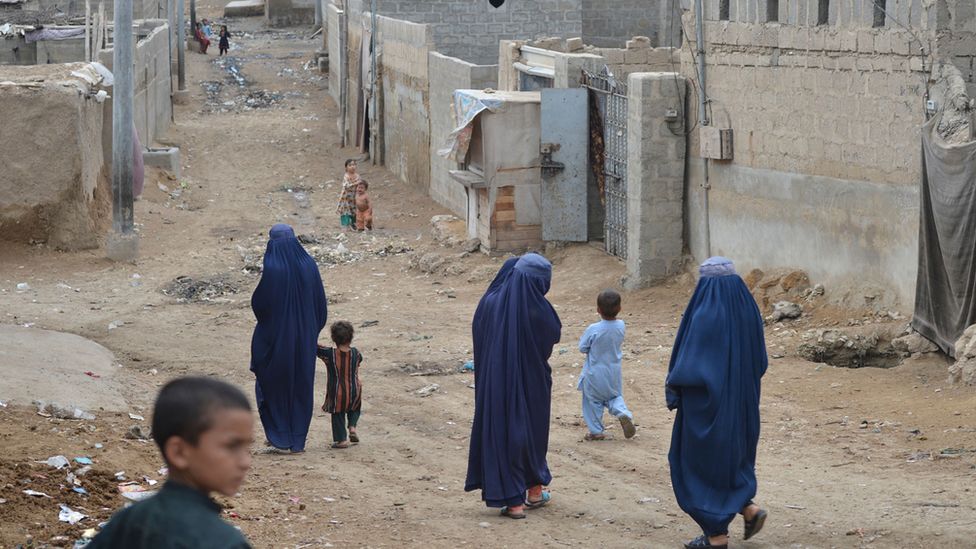 Getty Images
Getty ImagesThe UK government is to charter flights to relocate Afghan refugees living in Pakistan who have been promised UK visas, starting on Thursday.
Thousands of people who worked with or for the UK government in Afghanistan and fled the Taliban are in Pakistan, waiting for relocation to the UK.
Some have been waiting for over a year, according to charities.
Earlier this month, Pakistan said it plans to start deporting illegal migrants from 1 November.
Among the Afghan refugees in Pakistan are former translators for the British army and teachers for the British council, all part of either the Afghan citizens resettlement scheme or Afghan Relocations and Assistance Policy.
All went to Pakistan because the UK asked them to go to process their visas ready to start a new life in the UK.
But many of the refugees’ visas have now expired.
And according to a risk assessment document revealed in court, the British authorities in Pakistan now consider people in this group to be “at risk of deportation”.
Recent government figures show that around 3,250 men women and children on the UK’s relocation schemes are living in guest houses and hotels in Pakistan’s capital Islamabad.
While in Pakistan, they have no legal access to work and their children are not allowed to go to school.
Initially many thought they would be in Pakistan for a few weeks.
Documents released in court revealed how many face longer waits in part due to instructions by Prime Minister Rishi Sunak, banning their accommodation in hotels in the UK in all but extreme cases.
Instead, longer-term accommodation was to be found. An email released in the documents stated that this “should represent an overall net saving to the taxpayer”.
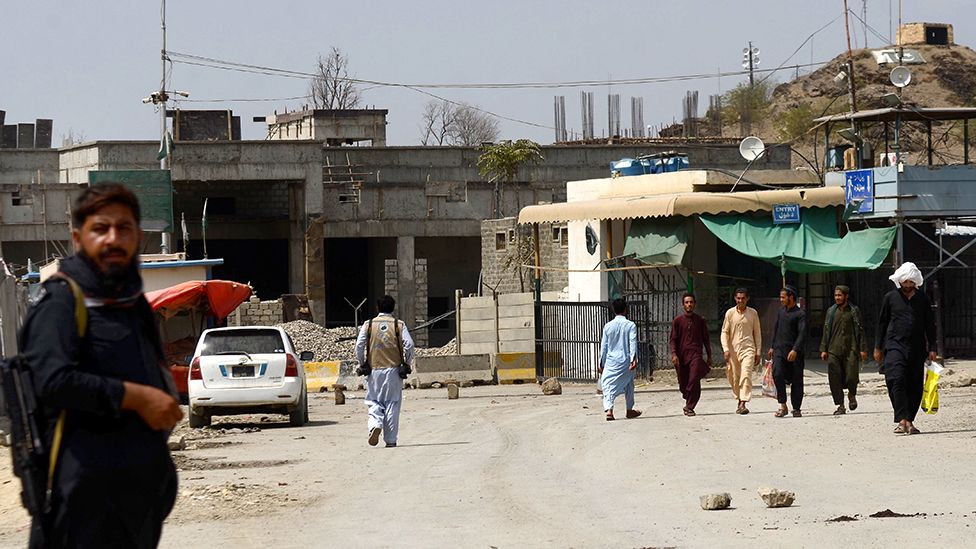
Over the past few weeks the BBC has spoken to people on the UK’s relocation programmes; many said they are afraid to leave their hotels.
According to official sources in Pakistan, the UK government is now planning on chartering several flights over the course of the next few months, until December.
The officials have said the first of these flights starts on Thursday.
The UK government has not said how many people will be onboard the first flight or how many are expected to be relocated before 1 November deadline.
The BBC understands that the government has decided that those on the relocation programmes will no longer need to be matched to so-called “suitable accommodation” before they arrive.
There was some hope, but also confusion about the news of the flights.
‘No one knows who is first’
Jamal, not his real name, worked as a translator for the British army, and said he had not heard anything from the British authorities.
“Hopefully everyone will move soon, no one knows who is first, who is in the middle, who is last,” he told the BBC.
Mahfouz, also not his real name, worked delivering projects for the UK government.
“I am just concerned what will happen if my family will not be on one of those flights until the end of December.
“My wife is pregnant and if we don’t travel soon we may have to wait into next year,” he said.
Those on the UK schemes are becoming increasingly nervous about the 1 November deadline.
Several told the BBC on at least two occasions where they had heard of police raiding accommodation and detaining people on the UK relocation schemes, who did not have the suitable documents to hand.
Even though they were released, it has left many frightened they could be sent back to Afghanistan.
The Taliban government has declared an amnesty for those who worked with international forces.
However, many people we spoke to talked about living in hiding before they left Afghanistan for Pakistan, scared, they said, of what might happen to them.
Some felt that by following the UK authorities’ directions and leaving Afghanistan they had put themselves at increased risk.
Qasim – not his real name – worked with the UK authorities.
He said: “Before we left Afghanistan, our lives were in 50% danger. Now they are in 100% danger.”
The UK authorities’ risk assessment also acknowledges that things may change after 1 November.
The document states that they have stood a “reasonable chance of success” of securing release, if notified in time of someone on the scheme’s detention.
But that “it is very difficult to judge we would be successful in every case if it were to happen frequently beyond 1 November and we were not informed or the eligible person didn’t have the documents with them.”
A UK Ministry of Defence spokesperson did not comment on the flights but said the UK had brought around 24,600 people from Afghanistan to safety, including thousands of people eligible for the country’s Afghan schemes.
Additional reporting by Gem O’Reilly
Related Topics
India to resume visa services for Canadians
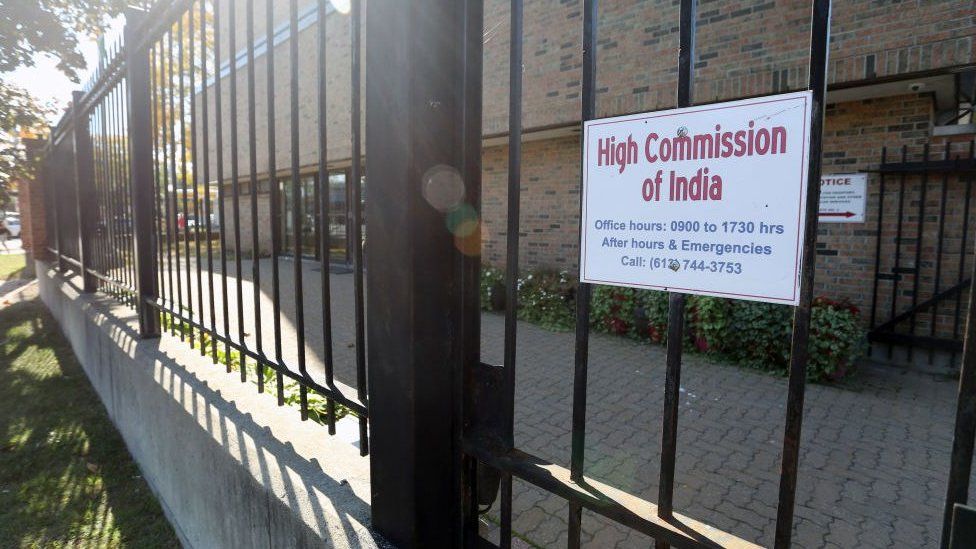 Getty Images
Getty ImagesIndia will resume visa services for Canadians after they ceased in a major diplomatic row in September, India’s High Commission in Ottawa says.
At the time, India said the move was due to “security threats” disrupting work at its Canadian missions.
But the suspension came amid a serious dispute over the killing of a Sikh separatist on Canadian soil.
Ottawa accused India of being behind the killing – an allegation New Delhi has called “absurd.”
On Wednesday, officials said they will resume issuing some visas after reviewing the security situation at their missions, and in light of recent Canadian measures which they did not name.
They added in a statement that “further decisions, as appropriate, would be intimated based on continuing evaluation of the situation”.
Services will reportedly resume on Thursday, and will apply to entry visas, as well as business, medical and conference visas.
Entry visas are specific to “persons of Indian origin” and their spouses and children, according to the website of Toronto’s Consulate General of India. They also apply to immediate family of an Indian citizen.
It is unclear if the resumption of services will apply to Canadian tourists, who would require a specific tourist visa.
Relations between India and Canada reached historic lows after Prime Minister Justin Trudeau said Canada was investigating credible allegations of India’s involvement in the murder of Hardeep Singh Nijjar, a Sikh separatist leader shot and killed in Surrey, British Columbia, in June.
Police at the time described it as a “targeted killing”, but no suspects have yet been identified.
Mr Trudeau has urged for India’s cooperation with the ongoing murder investigation, while stressing that Canada is not looking to escalate the rift with India.
Canada recently withdrew dozens of its diplomats from India, after the country threatened to remove diplomatic immunity for them.
India has said Canada had many more diplomats in Delhi than India has in Ottawa, and has demanded parity ever since the row between the two countries erupted.
But the Global Affairs website, which lists the Indian diplomats in Ottawa, suggests they had about the same number.
Twenty-one Canadian diplomats remain in India.
-
-
21 September
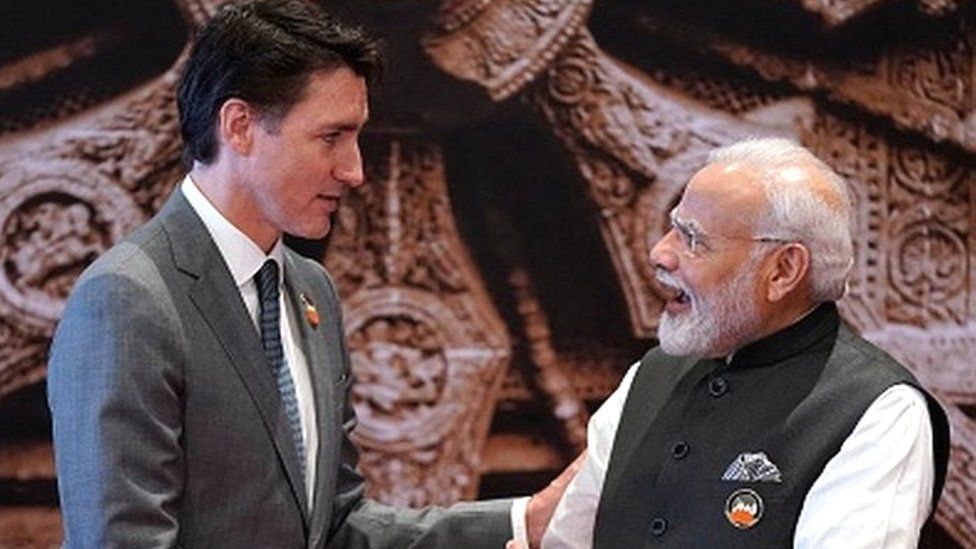
-
-
-
5 days ago
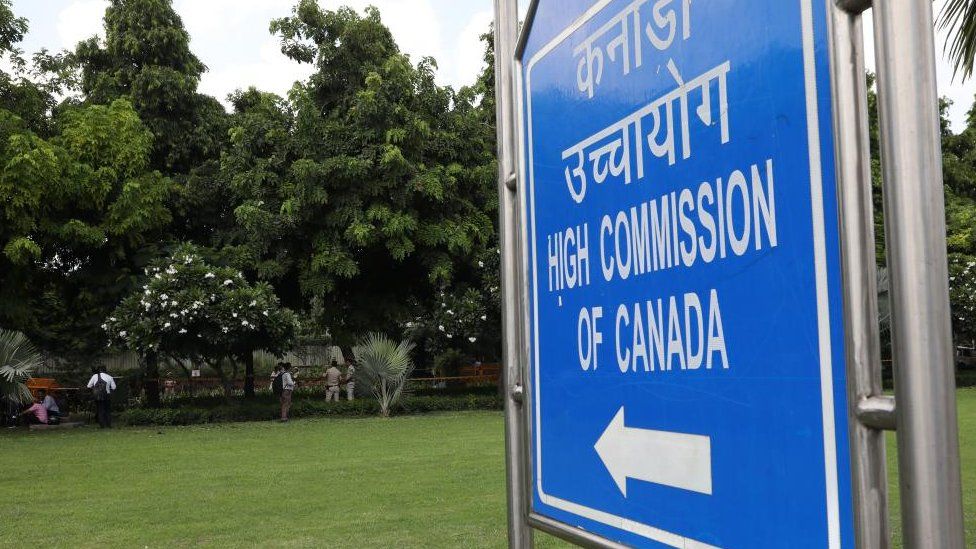
-
Pink Line service to open in November
PUBLISHED : 26 Oct 2023 at 04:00

The Pink Line, a 34.5-kilometre monorail line connecting Min Buri in east Bangkok and Khae Rai in Nonthaburi, is slated to open next month, with free rides offered to riders for a month, according to the Department of Rail Transport (DRT) yesterday.
Speaking after inspecting construction along the line, DRT director-general, Pichet Kunadhamraks, said the Pink Line should be ready for a soft launch on Nov 18, as work is about 98% completed.
Once finished, the line will be the country’s second monorail system after the Yellow Line, which has gone into commercial service. The lines are run by the Mass Rapid Transit Authority of Thailand (MRTA).
The line will allow commuters heading towards the city’s east to bypass the heavily congested areas around Government Complex in Nonthaburi, as well as Rattanathibet, Chaeng Watthana and Ram Inthra roads.
The Pink Line has 30 stations, with interchanges with other electric rail systems, including the Green, Red and Purple lines.
Pink Line commuters will be able to reach the Government Complex through a skywalk. Wat Phra Si Mahathat and Lak Si stations also feature a skywalk which allows commuters to switch to the Green and Red lines, respectively.
The line’s opening has had to be pushed back several times due to problems with the descending and ascending sections of tracks between Chaeng Watthana 14 and National Telecoms stations.
At present, all ground columns and stations are ready, except for some details on the roofs, railings, escalators and elevators, he said.
Once these works are completed, the project’s contractor will reopen sections of the roads which were closed during the line’s construction.
New push to cut forest hot spots

Firms stand to get financial help
PUBLISHED : 26 Oct 2023 at 04:00
The government plans to offer tax incentives for companies that provide financial aid to reduce fine particulate matter smaller than 2.5 microns, or PM2.5, caused by forest fires.
Jatuporn Buruspat, permanent secretary of the Ministry of Natural Resources and Environment, said yesterday the ministry was concerned about haze pollution, which is expected to dominate the central and northern regions from November to March due to a longer drought period, an impact of the El Nino phenomenon.
Many measures have been implemented, yet air pollution during the dry season gets worse every year, he said, adding that one approach is stopping the hot spots in forests after fires start.
The ministry has created a list of the top 10 national parks and top 10 reserve forests with a record of damage caused by forest fires. Most are located in the North. Sri Nan National Park in Nan was hit the most by forest fires last year, or about 71.95% of its total forest area, he said.
He said measures to prevent forest fires have been set up under close cooperation from national park officials and villagers to limit the number of hotspots in northern forests. The measures need financial support, he added.
The ministry, the Board of Investment and the Ministry of Finance have discussed the issue and come up with a policy to provide a tax reduction of 200% to any company that offers financial support to the project, he said. The proposal will be submitted to the National Environment Board today.
“We need a huge budget to tackle forest fires. A delayed budget will cause difficulty so we have proposed the idea of raising funds to support our work. The money will go to local communities and forest officials to control hotspots,” he said, adding that participating companies should get something in return more than just praise.
The ministry yesterday opened a Centre for Air Pollution Mitigation (CAPM), giving information on haze pollution through its Facebook page, including daily Facebook Live briefings at 2pm.
The move is also in response to adjustments of the air quality index, in which the safety level of PM2.5 rises from 50 microgrammes per cubic metre to 37.5/cu mec.

